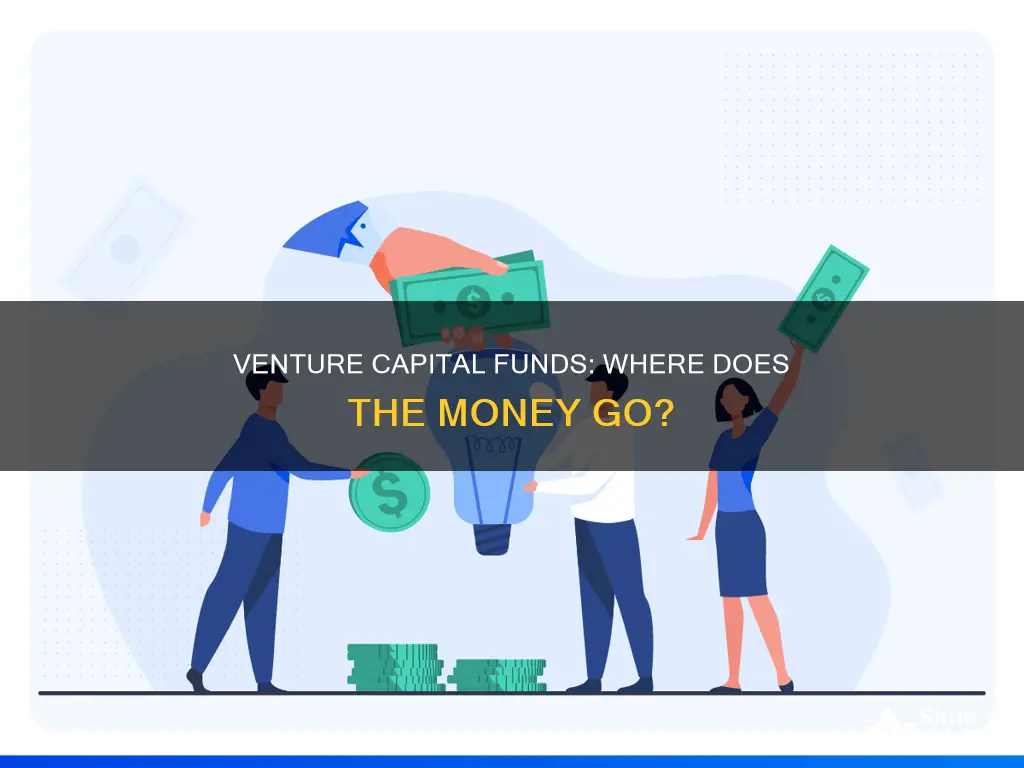
Venture capital funds are a type of private equity investment that focuses on providing financing to startup companies and small businesses with high growth potential. These funds are typically managed by venture capital firms, which employ individuals with technology, business, or industry expertise. The funds are raised from investors, including high-net-worth individuals, financial institutions, and investment banks, and are then invested in a portfolio of early-stage companies. Venture capitalists take on the risk of financing these startups, aiming for successful exits through initial public offerings (IPOs), mergers, or acquisitions. While venture capital investments offer the potential for high returns, they also carry significant risks, and investors must be prepared for possible losses.
| Characteristics | Values |
|---|---|
| Investment type | Private equity |
| Investment focus | Startups, small businesses, emerging companies |
| Investment stage | Pre-seed, seed, early-stage, growth capital, exit |
| Investor type | Wealthy individuals, firms, financial institutions, investment banks |
| Investment approach | High-risk/high-return, long investment horizon |
| Investor profile | Accredited investors, high-net-worth individuals |
| Investment size | Modest amounts of capital |
| Number of investments | Relatively large number of companies |
| Investor involvement | Active role, guidance, mentorship |
| Investment structure | Pooled investment funds, limited partnerships |
| Investment returns | High growth, large payouts |
| Exit strategy | IPO, merger, acquisition, secondary sale |

Seed funding
The primary goal of seed funding is to attract further financing from venture capitalists and banks. This early financial support is intended to help a company finance its first steps, including market research and product development.
Mutual Funds: Are NRIs Missing Out on Indian Investments?
You may want to see also

Early-stage funding
At this stage, startups have already developed a product and are looking to scale their operations. They approach VCs or other investors, such as angel investors, to secure the necessary funding. VCs are often institutional investors, such as pension funds, university endowments, or financial firms, or they can be high-net-worth individuals like former entrepreneurs. These investors are willing to take on the risk of investing in early-stage companies due to the potential for high returns.
The process of securing early-stage funding usually involves several steps. Startups begin by creating a pitch deck, which they can cold-email to VC firms or, ideally, use their network to get a warm introduction. If the VC firm is interested, there will be meetings and due diligence, which includes a thorough investigation of the company's business model, products, management team, and operating history. If the VC firm is satisfied, they will offer a term sheet with the details of the proposed investment.
Mid-Cap Funds: Smart Investment for Long-Term Growth
You may want to see also

Growth capital
Growth investors tend to hold their investments for a more standard period of around five years. In contrast, venture investors tend to hold their investments for much longer periods of ten years or more, given that they invest so early in a company's life.
Growth equity investments often involve some level of debt financing. These companies are more mature, with established cash flows and a proven business model, making them suitable for leveraging debt to finance further growth.
Pharma Mutual Funds: Invest Now or Later?
You may want to see also

Bridge financing
Debt Bridge Financing
Debt bridge financing involves a company taking out a short-term, high-interest loan, known as a bridge loan. This option may not be suitable for companies that are already struggling financially, as the high-interest rates may cause further financial difficulties.
Equity Bridge Financing
Equity bridge financing involves a company offering a stake in the business to a venture capital firm in exchange for financing. The venture capital firm will only accept such a deal if they believe the company will become profitable, which will increase the value of their stake.
IPO Bridge Financing
IPO bridge financing is used by companies preparing to go public. The financing covers the IPO costs and is then paid off when the company goes public. This type of financing is usually provided by the investment bank underwriting the new issue.
Mutual Funds: Active Management Advantage Over Index Funds
You may want to see also

Venture debt
The first lender to specialise in venture debt financing was Silicon Valley Bank (SVB) in the 1980s. Most commercial banks do not offer venture debt, but a few banks, including SVB, consider it a core product offering.
Unit Trust Funds: Diversify Your Portfolio, Maximize Returns
You may want to see also
Frequently asked questions
A venture capital fund pools money from investors to finance early-stage startup companies with high long-term growth potential. These funds are typically structured as limited partnerships, with a general partner managing the fund and limited partners providing the capital as passive investors.
Venture capital funds invest in companies with high growth potential that are often in the early stages of development and need capital to fuel their growth. These companies typically operate in high-tech or emerging industries and may be developing new products, trying out new business models, or scaling their businesses to a larger audience.
Venture capital funds are considered high-risk investments due to the high failure rate of startup ventures. However, the potential rewards are also high, as successful investments can generate substantial returns for the fund. The fund managers take an active role in their target investments, working directly with entrepreneurs to optimise strategy, use capital efficiently, and go to market quickly.







